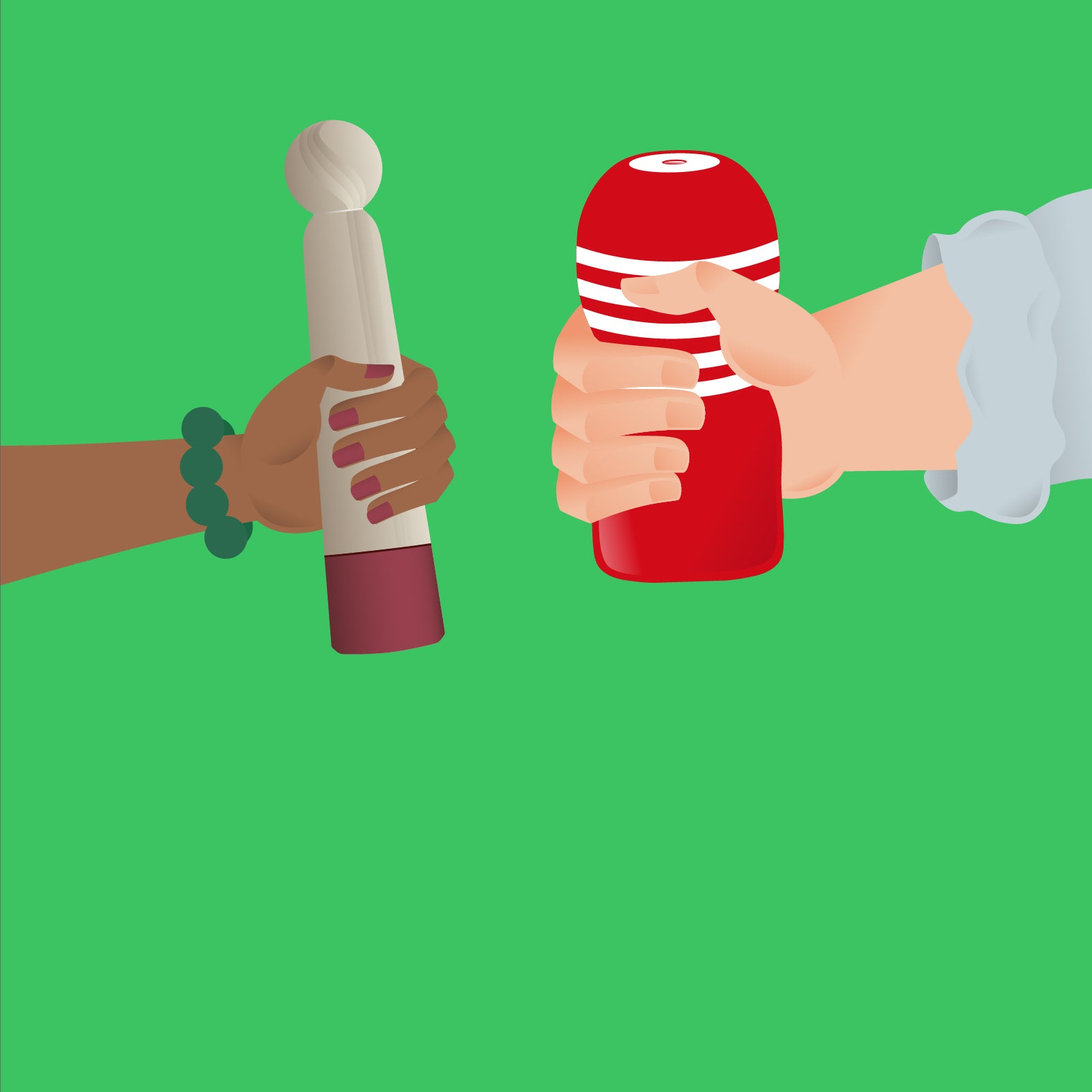
What Causes A Man to Not Climax
Reaching climax should be a normal and healthy process. But what happens if you are not able to? If this happens, a myriad of concerns and questions could be running through your mind: What did I do wrong? Did I break something? Did I have too much sex? Did I catch a disease? Am I going through male menopause?

As we will discuss, the causes for not being able to climax can be varied and sometimes complicated, ranging from physical, mental, chemical, or even hormonal issues, or a combination of any of these. Let’s explore some of the underlying reasons for not being able to climax.

But before we proceed, we need to make the usual disclaimer:
This article is for informational purposes only and is not a substitute for professional medical advice, diagnosis, or treatment. Always seek the advice of your physician or other qualified health provider with any questions you may have regarding a medical condition. Reliance on any information provided in this article is solely at your own risk.
CONTENTS
- Anorgasmia
- Physical Issues for Not Climaxing
- Mental Issues for Not Climaxing
- Adverse Effects from Drugs or Alcohol
- Is There A Solution?
- Summary
Anorgasmia

A common term often used concerning the inability to climax is anorgasmia. Anorgasmia is the inability or difficulty to achieve an orgasm, even with sufficient sexual stimulation. Causes can vary, and may include physical or psychological factors, or a combination of both.
Physical Issues for Not Climaxing
Certain physical issues can contribute to anorgasmia, which may include:
- Hormonal imbalances: Hormonal changes associated with male menopause or thyroid disorders can also impact sexual function. Low levels of testosterone can result in erectile dysfunction and delayed ejaculation.
- Nerve conditions due to disease: If you have diabetes or multiple sclerosis, Parkinson's disease or a spinal cord injury, these illnesses can affect nerve function and interfere with having an orgasm.
- Surgery: Surgeries around the pelvic region, such as prostate surgery, or surgery for rectal cancer, can sometimes lead to anorgasmia due to the procedure potentially affecting nerves and muscles in the area related to ejaculation.
- Age: As mentioned above, hormone levels of testosterone start to decline sometime around the age of 40, and continue to decline, on average at the rate of 1 percent each year. Testosterone has a large influence on the desire to have sex, or the libido.
- Reliance on masturbation (prefer it over sex): Masturbation, or self-pleasure, can be a safe and satisfying method of sexual fulfillment. However, if you find yourself easily climaxing during masturbation and not being able to while you are with your partner, it may create some negative consequences, including relational tension. The “death grip” is an excessively strong grip when masturbating. When you have too strong a grip while masturbating and get used to it, other types of sexual stimulation can seem less satisfying.
TENGA believes that masturbation and sex with a partner are two totally separate and natural activities. Both can coexist within the relationship and even compliment each other. If you do find one interfering with the other, we encourage seeking the advice of a specialist.
Mental Issues for Not Climaxing

Likewise, psychological issues can also contribute to anorgasmia. A few common psychological issues include:
- Stress and anxiety: High levels of stress, anxiety, or depression can interfere with your ability to relax and perform sexually.
- Past Trauma or abuse: Sexual abuse can potentially trigger past memories, connected to negative feelings and lead to struggling with arousal or intimacy. This may also lead to challenges in reaching climax.
- Self-esteem or performance anxiety issues: Not feeling “good enough” or feeling anxiety about being able to satisfy your partner can potentially impact your performance during sexual activity.
Adverse Effects from Drugs or Alcohol

Alcohol and certain drugs can affect nerves and desensitize genitals, causing one to take longer to reach orgasm, or even prevent orgasm.
- Whiskey Dick: Effects from alcohol consumption can be temporary, but you may not be able to climax when the moment nears, especially if you've had too much alcohol to drink.
- Medications: Certain medications, including some antidepressants, antipsychotics, blood pressure medications, and serotonin reuptake inhibitors (SSRIs), may have side effects that affect sexual response.
- Even tobacco can affect sexual function, as a study has found there may even be a link to smoking causing decreased libido in men.
Is There A Solution?

Treatment for orgasmic dysfunction varies, depending on the underlying cause. In terms of a mental condition causing the climaxing issue, a doctor may recommend sex therapy or couples counseling, focusing more on concerns related to relationship issues or dealing with some past traumatic experience as a cause of one’s sexual function and ability to orgasm.
In some cases, masturbation may be recommended as training for erectile dysfunction (ED) or other conditions pertaining to sexual function. TENGA has created a separate brand, called THC (TENGA Healthcare) in order to help people having some sort of issue or concern about their sexual health, including ED.
In the case of aging, or reaching male menopause, where testosterone levels begin to decline, exercise, or possibly testosterone replacement could be prescribed.
It is important to speak with your doctor about your condition in order to help determine what type of help you require.
Summary

Opening up the barrier to being able to climax can also open up the barriers to intimacy and more pleasure. Hence, the ability to climax can serve as a healthy way to achieve more fulfillment and satisfaction in other areas of one’s life.
As the causes for a man not being able to climax can be complicated and varied, it's always recommended to seek guidance from a healthcare professional. A specialist can help identify the specific factors contributing to the issue and recommend the appropriate therapy or treatment.
Masturbation can serve as a helpful tool for self-pleasure, and even help with certain sexual issues. Our blogs cover a wide variety of subjects on self-pleasure as well as the features and benefits of many TENGA products. We would appreciate it if you could take a look at what we have to offer.





